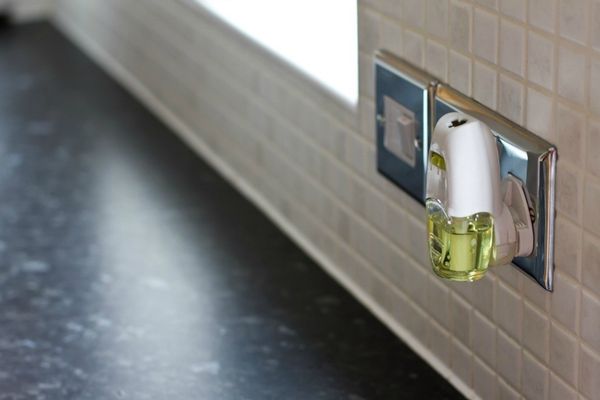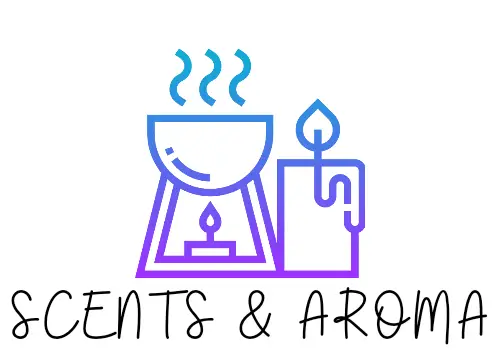Plug-in air fresheners release a reasonable amount of toxic substances into the atmosphere. These toxins are known to cause several health problems, especially headaches and breathing problems. Using plug-in air fresheners in a small space can cause indoor pollution and health problems for you and your pets.
In this article, we will answer the following questions:
- Are plug-in air fresheners safe?
- Do plug-in air fresheners contain toxic substances?
- Is it safe to have plug-ins in a small room?
- Do plug-in air fresheners cause indoor air pollution?
- Are plug-in air fresheners safe for cats and dogs?
This article will cover the safety of most of the leading brands of plug in air fresheners such as:
- Febreeze plug-in.
- Air Wick plug-in.
- Glade plug-in.
- Ambi Pur plug-in.
- Bath and Body Works plug in wallflowers.

Are Plug-in Air Fresheners Safe?
Plug-in air fresheners are not exactly safe. Using them to freshen the air can cause health problems and even further pollute the air instead of cleansing it. Most plug-in fresheners have been found to contain several toxic substances.
Plug-in air fresheners, when inhaled, can cause headaches, breathing difficulties, asthma attacks, throat irritation, coughing, and other related problems. For children and people with breathing-related problems, plug-ins are unsafe as they can trigger asthma attacks and cause lung problems. Children are also more sensitive, so air fresheners should not be used around them.
However, some people feel the amount of toxins they produce is not alarming, especially when used minimally in a large room. Nevertheless, it is best to use safer options to freshen the air, like baking soda and oil diffusers.
Do Plug-in Air Fresheners contain Toxic Chemicals?
Yes, plug-in air fresheners contain several toxic chemicals that are harmful to health when inhaled. Amongst these toxins, the most common ones found in air fresheners are phthalates, formaldehyde, naphthalene, Volatile Organic Compounds (VOCs), 1,4 dichlorobenzene, and toluene.
- Phthalate is a toxin commonly associated with congenital disabilities, hormonal imbalances, breast cancer, and reproductive abnormalities.
- Formaldehyde is a human carcinogen that irritates the airways and throat and causes asthma and respiratory problems.
- 1,4 Dichlorobenzene can irritate the respiratory tract and damage the nervous system.
- Volatile Organic Compounds (VOCs): These compounds are common pollutants found in the air. They cause breathing difficulties and asthma.
- Naphthalene is a known cause of lung cancer and tissue damage.
- Toluene is a toxic substance that causes developmental and reproductive abnormalities, and liver and kidney damage.
Since the Food and Drug Administration (FDA) does not demand companies to list the chemicals and fragrances used in products like air fresheners, companies can include any chemical without listing them. Most air fresheners state their ingredients as ‘fragrance’ and ‘odor eliminator,’ which doesn’t leave room for consumers to know what ingredients are used.
As such, it is best to avoid using these air fresheners. Even the products advertised as organic are not completely rid of these toxic chemicals.
Is it Safe to Have Plug-ins in a Small Room?
No, it is unsafe to use a plug-in air freshener in a small room. While the general use of plug-ins can be debatable, using them in a small room is very unhealthy. This is because there is no proper ventilation in smaller rooms; thus, the air freshener will not be properly dissipated, causing excessive inhalation of these toxic chemicals.
In a larger room, the concentration of the freshener reduces since the air spreads it around, but in smaller rooms and tighter spaces, the concentration is higher. This will mean there are higher chances of headaches, breathing difficulties, and other health problems when using plug-in air fresheners in small rooms.
Do Plug-in Air Fresheners cause Indoor Pollution?
Plug-in air fresheners can cause indoor pollution. Indoor pollution is when the air inside the home is polluted, and the air quality is decreased.
We spend a lot of time at home, so the air we breathe should matter. While we personally don’t have control over the quality of the air outside the home, we do have control over the air inside the home.
Plug-in air fresheners can affect the quality of air indoors. When used in the home, these fresheners pollute the air by releasing toxic chemicals, causing indoor air pollution.
When these chemicals are dispersed into the air, they mix with the air in the home and pollute it. When we breathe them in, they can cause several minor health issues like headaches, coughing, allergies, and throat irritation, and over time, they can lead to major health problems.
Air fresheners are more harmful to people with asthma and breathing-related problems. Breathing such polluted air can lead to attacks and lung problems.
Are Plug-in Air Fresheners Safe for Cats and Dogs?
Plug-in air fresheners are not only unsafe for humans, but they are also unsafe for pets. In fact, pets tend to be more affected by them. Plug-in air fresheners are plugged close to the floor, so pets will inhale more of it since it’s closer to them.
Cats and dogs are more sensitive to smell than humans and will be more affected by the toxic chemicals in air fresheners. These air fresheners can affect a cat’s kidney and liver in the long run. Your cat might cough, sneeze, vomit or become less active after inhaling air fresheners.
Staying in a room that has a plug-in air freshener can affect the cat even after the smell leaves. Excessive inhalation can also cause diarrhea and asthma.
Dogs can develop respiratory irritation, stomach upset, and diarrhea after inhaling air fresheners. They could also present minor allergy symptoms like coughing, tearing, and sneezing. Ethanol, a chemical present in most plug-in air fresheners, is poisonous to dogs and can make them sick.
Also, essential oils used as fragrances can harm cats and dogs. These furry friends are allergic to some essential oils, and inhaling them harms their health. If you have a pet, you should go for better air freshening options.
Conclusion
Plug-in air fresheners are not a safe option for the home. They contain some toxic chemicals that cause health problems to humans and pets. Plug-in air fresheners also cause indoor air pollution, and when used in a room without proper ventilation, you get to inhale more of these chemicals.
To freshen your home, you can use safer options like baking soda, essential oil diffusers, and other organic fresheners.
- Can You Put Perfume In A Humidifier? (Read First) - September 17, 2022
- Can You Put Essential Oil In A Steam Mop? (Safety Advice) - September 17, 2022
- How To Make Lavender Oil At Home ( Candles And Diffusers) - September 9, 2022

